Loading metrics
Open Access

Ten simple rules for choosing a PhD supervisor
Contributed equally to this work with: Loay Jabre, Catherine Bannon, J. Scott P. McCain, Yana Eglit
* E-mail: [email protected]
Affiliation Department of Biology, Dalhousie University, Halifax, Nova Scotia, Canada
- Loay Jabre,
- Catherine Bannon,
- J. Scott P. McCain,

Published: September 30, 2021
- https://doi.org/10.1371/journal.pcbi.1009330
- Reader Comments
Citation: Jabre L, Bannon C, McCain JSP, Eglit Y (2021) Ten simple rules for choosing a PhD supervisor. PLoS Comput Biol 17(9): e1009330. https://doi.org/10.1371/journal.pcbi.1009330
Editor: Scott Markel, Dassault Systemes BIOVIA, UNITED STATES
Copyright: © 2021 Jabre et al. This is an open access article distributed under the terms of the Creative Commons Attribution License , which permits unrestricted use, distribution, and reproduction in any medium, provided the original author and source are credited.
Funding: The authors received no specific funding for this work.
Competing interests: The authors have declared that no competing interests exist.
Introduction
The PhD beckons. You thought long and hard about why you want to do it, you understand the sacrifices and commitments it entails, and you have decided that it is the right thing for you. Congratulations! Undertaking a doctoral degree can be an extremely rewarding experience, greatly enhancing your personal, intellectual, and professional development. If you are still on the fence about whether or not you want to pursue a PhD, see [ 1 , 2 ] and others to help you decide.
As a PhD student in the making, you will have many important decisions to consider. Several of them will depend on your chosen discipline and research topic, the institution you want to attend, and even the country where you will undertake your degree. However, one of the earliest and most critical decisions you will need to make transcends most other decisions: choosing your PhD thesis supervisor. Your PhD supervisor will strongly influence the success and quality of your degree as well as your general well-being throughout the program. It is therefore vital to choose the right supervisor for you. A wrong choice or poor fit can be disastrous on both a personal and professional levels—something you obviously want to avoid. Unfortunately, however, most PhD students go through the process of choosing a supervisor only once and thus do not get the opportunity to learn from previous experiences. Additionally, many prospective PhD students do not have access to resources and proper guidance to rely on when making important academic decisions such as those involved in choosing a PhD supervisor.
In this short guide, we—a group of PhD students with varied backgrounds, research disciplines, and academic journeys—share our collective experiences with choosing our own PhD supervisors. We provide tips and advice to help prospective students in various disciplines, including computational biology, in their quest to find a suitable PhD supervisor. Despite procedural differences across countries, institutions, and programs, the following rules and discussions should remain helpful for guiding one’s approach to selecting their future PhD supervisor. These guidelines mostly address how to evaluate a potential PhD supervisor and do not include details on how you might find a supervisor. In brief, you can find a supervisor anywhere: seminars, a class you were taught, internet search of interesting research topics, departmental pages, etc. After reading about a group’s research and convincing yourself it seems interesting, get in touch! Make sure to craft an e-mail carefully, demonstrating you have thought about their research and what you might do in their group. After finding one or several supervisors of interest, we hope that the rules bellow will help you choose the right supervisor for you.
Rule 1: Align research interests
You need to make sure that a prospective supervisor studies, or at the very least, has an interest in what you want to study. A good starting point would be to browse their personal and research group websites (though those are often outdated), their publication profile, and their students’ theses, if possible. Keep in mind that the publication process can be slow, so recent publications may not necessarily reflect current research in that group. Pay special attention to publications where the supervisor is senior author—in life sciences, their name would typically be last. This would help you construct a mental map of where the group interests are going, in addition to where they have been.
Be proactive about pursuing your research interests, but also flexible: Your dream research topic might not currently be conducted in a particular group, but perhaps the supervisor is open to exploring new ideas and research avenues with you. Check that the group or institution of interest has the facilities and resources appropriate for your research, and/or be prepared to establish collaborations to access those resources elsewhere. Make sure you like not only the research topic, but also the “grunt work” it requires, as a topic you find interesting may not be suitable for you in terms of day-to-day work. You can look at the “Methods” sections of published papers to get a sense for what this is like—for example, if you do not like resolving cryptic error messages, programming is probably not for you, and you might want to consider a wet lab–based project. Lastly, any research can be made interesting, and interests change. Perhaps your favorite topic today is difficult to work with now, and you might cut your teeth on a different project.
Rule 2: Seek trusted sources
Discussing your plans with experienced and trustworthy people is a great way to learn more about the reputation of potential supervisors, their research group dynamics, and exciting projects in your field of interest. Your current supervisor, if you have one, could be aware of position openings that are compatible with your interests and time frame and is likely to know talented supervisors with good reputations in their fields. Professors you admire, reliable student advisors, and colleagues might also know your prospective supervisor on various professional or personal levels and could have additional insight about working with them. Listen carefully to what these trusted sources have to say, as they can provide a wealth of insider information (e.g., personality, reputation, interpersonal relationships, and supervisory styles) that might not be readily accessible to you.
Rule 3: Expectations, expectations, expectations
A considerable portion of PhD students feel that their program does not meet original expectations [ 3 ]. To avoid being part of this group, we stress the importance of aligning your expectations with the supervisor’s expectations before joining a research group or PhD program. Also, remember that one person’s dream supervisor can be another’s worst nightmare and vice versa—it is about a good fit for you. Identifying what a “good fit” looks like requires a serious self-appraisal of your goals (see Rule 1 ), working style (see Rule 5 ), and what you expect in a mentor (see Rule 4 ). One way to conduct this self-appraisal is to work in a research lab to get experiences similar to a PhD student (if this is possible).
Money!—Many people have been conditioned to avoid the subject of finances at all costs, but setting financial expectations early is crucial for maintaining your well-being inside and outside the lab. Inside the lab, funding will provide chemicals and equipment required for you to do cool research. It is also important to know if there will be sufficient funding for your potential projects to be completed. Outside the lab, you deserve to get paid a reasonable, livable stipend. What is the minimum required take-home stipend, or does that even exist at the institution you are interested in? Are there hard cutoffs for funding once your time runs out, or does the institution have support for students who take longer than anticipated? If the supervisor supplies the funding, do they end up cutting off students when funds run low, or do they have contingency plans? ( Fig 1 ).
- PPT PowerPoint slide
- PNG larger image
- TIFF original image
https://doi.org/10.1371/journal.pcbi.1009330.g001
Professional development opportunities—A key aspect of graduate school training is professional development. In some research groups, it is normal for PhD students to mentor undergraduate students or take a semester to work in industry to get more diverse experiences. Other research groups have clear links with government entities, which is helpful for going into policy or government-based research. These opportunities (and others) are critical for your career and next steps. What are the career development opportunities and expectations of a potential supervisor? Is a potential supervisor happy to send students to workshops to learn new skills? Are they supportive of public outreach activities? If you are looking at joining a newer group, these sorts of questions will have to be part of the larger set of conversations about expectations. Ask: “What sort of professional development opportunities are there at the institution?”
Publications—Some PhD programs have minimum requirements for finishing a thesis (i.e., you must publish a certain number of papers prior to defending), while other programs leave it up to the student and supervisor to decide on this. A simple and important topic to discuss is: How many publications are expected from your PhD and when will you publish them? If you are keen to publish in high-impact journals, does your prospective supervisor share that aim? (Although question why you are so keen to do so, see the San Francisco Declaration on Research Assessment ( www.sfdora.org ) to learn about the pitfalls of journal impact factor.)
Rule 4: It takes two to tango
Sooner or later, you will get to meet and interview with a prospective PhD supervisor. This should go both ways: Interview them just as much as they are interviewing you. Prepare questions and pay close attention to how they respond. For example, ask them about their “lab culture,” research interests (especially for the future/long term), and what they are looking for in a graduate student. Do you feel like you need to “put on an act” to go along with the supervisor (beyond just the standard interview mode)? Represent yourself, and not the person you think they are looking for. All of us will have some interviews go badly. Remember that discovering a poor fit during the interview has way fewer consequences than the incompatibility that could arise once you have committed to a position.
To come up with good questions for the prospective supervisor, first ask yourself questions. What are you looking for in a mentor? People differ in their optimal levels of supervision, and there is nothing wrong with wanting more or less than your peers. How much career guidance do you expect and does the potential supervisor respect your interests, particularly if your long-term goals do not include academia? What kind of student might not thrive in this research group?
Treat the PhD position like a partnership: What do you seek to get out of it? Keep in mind that a large portion of research is conducted by PhD students [ 4 ], so you are also an asset. Your supervisor will provide guidance, but the PhD is your work. Make sure you and your mentor are on the same page before committing to what is fundamentally a professional contract akin to an apprenticeship (see “ Rule 3 ”).
Rule 5: Workstyle compatibility
Sharing interests with a supervisor does not necessarily guarantee you would work well together, and just because you enjoyed a course by a certain professor does not mean they are the right PhD supervisor for you. Make sure your expectations for work and work–life approaches are compatible. Do you thrive on structure, or do you need freedom to proceed at your own pace? Do they expect you to be in the lab from 6:00 AM to midnight on a regular basis (red flag!)? Are they comfortable with you working from home when you can? Are they around the lab enough for it to work for you? Are they supportive of alternative work hours if you have other obligations (e.g., childcare, other employment, extracurriculars)? How is the group itself organized? Is there a lab manager or are the logistics shared (fairly?) between the group members? Discuss this before you commit!
Two key attributes of a research group are the supervisor’s career stage and number of people in the group. A supervisor in a later career stage may have more established research connections and protocols. An earlier career stage supervisor comes with more opportunities to shape the research direction of the lab, but less access to academic political power and less certainty in what their supervision style will be (even to themselves). Joining new research groups provides a great opportunity to learn how to build a lab if you are considering that career path but may take away time and energy from your thesis project. Similarly, be aware of pros and cons of different lab sizes. While big labs provide more opportunity for collaborations and learning from fellow lab members, their supervisors generally have less time available for each trainee. Smaller labs tend to have better access to the supervisor but may be more isolating [ 5 , 6 ]. Also note that large research groups tend to be better for developing extant research topics further, while small groups can conduct more disruptive research [ 7 ].
Rule 6: Be sure to meet current students
Meeting with current students is one of the most important steps prior to joining a lab. Current students will give you the most direct and complete sense of what working with a certain supervisor is actually like. They can also give you a valuable sense of departmental culture and nonacademic life. You could also ask to meet with other students in the department to get a broader sense of the latter. However, if current students are not happy with their current supervisor, they are unlikely to tell you directly. Try to ask specific questions: “How often do you meet with your supervisor?”, “What are the typical turnaround times for a paper draft?”, “How would you describe the lab culture?”, “How does your supervisor react to mistakes or unexpected results?”, “How does your supervisor react to interruptions to research from, e.g., personal life?”, and yes, even “What would you say is the biggest weakness of your supervisor?”
Rule 7: But also try to meet past students
While not always possible, meeting with past students can be very informative. Past students give you information on career outcomes (i.e., what are they doing now?) and can provide insight into what the lab was like when they were in it. Previous students will provide a unique perspective because they have gone through the entire process, from start to finish—and, in some cases, no longer feel obligated to speak well of their now former supervisor. It can also be helpful to look at previous students’ experiences by reading the acknowledgement section in their theses.
Rule 8: Consider the entire experience
Your PhD supervisor is only one—albeit large—piece of your PhD puzzle. It is therefore essential to consider your PhD experience as whole when deciding on a supervisor. One important aspect to contemplate is your mental health. Graduate students have disproportionately higher rates of depression and anxiety compared to the general population [ 8 ], so your mental health will be tested greatly throughout your PhD experience. We suggest taking the time to reflect on what factors would enable you to do your best work while maintaining a healthy work–life balance. Does your happiness depend on surfing regularly? Check out coastal areas. Do you despise being cold? Consider being closer to the equator. Do you have a deep-rooted phobia of koalas? Maybe avoid Australia. Consider these potentially even more important questions like: Do you want to be close to your friends and family? Will there be adequate childcare support? Are you comfortable with studying abroad? How does the potential university treat international or underrepresented students? When thinking about your next steps, keep in mind that although obtaining your PhD will come with many challenges, you will be at your most productive when you are well rested, financially stable, nourished, and enjoying your experience.
Rule 9: Trust your gut
You have made it to our most “hand-wavy” rule! As academics, we understand the desire for quantifiable data and some sort of statistic to make logical decisions. If this is more your style, consider every interaction with a prospective supervisor, from the first e-mail onwards, as a piece of data.
However, there is considerable value in trusting gut instincts. One way to trust your gut is to listen to your internal dialogue while making your decision on a PhD supervisor. For example, if your internal dialogue includes such phrases as “it will be different for me,” “I’ll just put my head down and work hard,” or “maybe their students were exaggerating,” you might want to proceed with caution. If you are saying “Wow! How are they so kind and intelligent?” or “I cannot wait to start!”, then you might have found a winner ( Fig 2 ).
https://doi.org/10.1371/journal.pcbi.1009330.g002
Rule 10: Wash, rinse, repeat
The last piece of advice we give you is to do this lengthy process all over again. Comparing your options is a key step during the search for a PhD supervisor. By screening multiple different groups, you ultimately learn more about what red flags to look for, compatible work styles, your personal expectations, and group atmospheres. Repeat this entire process with another supervisor, another university, or even another country. We suggest you reject the notion that you would be “wasting someone’s time.” You deserve to take your time and inform yourself to choose a PhD supervisor wisely. The time and energy invested in a “failed” supervisor search would still be far less than what is consumed by a bad PhD experience ( Fig 3 ).
The more supervisors your interview and the more advice you get from peers, the more apparent these red flags will become.
https://doi.org/10.1371/journal.pcbi.1009330.g003
Conclusions
Pursuing a PhD can be an extremely rewarding endeavor and a time of immense personal growth. The relationship you have with your PhD supervisor can make or break an entire experience, so make this choice carefully. Above, we have outlined some key points to think about while making this decision. Clarifying your own expectations is a particularly important step, as conflicts can arise when there are expectation mismatches. In outlining these topics, we hope to share pieces of advice that sometimes require “insider” knowledge and experience.
After thoroughly evaluating your options, go ahead and tackle the PhD! In our own experiences, carefully choosing a supervisor has led to relationships that morph from mentor to mentee into a collaborative partnership where we can pose new questions and construct novel approaches to answer them. Science is hard enough by itself. If you choose your supervisor well and end up developing a positive relationship with them and their group, you will be better suited for sound and enjoyable science.
- View Article
- Google Scholar
- PubMed/NCBI
- 5. Smith D. The big benefits of working in a small lab. University Affairs. 2013. Available from: https://www.universityaffairs.ca/career-advice/career-advice-article/the-big-benefits-of-working-in-a-small-lab/
You're viewing this site as a domestic an international student
You're a domestic student if you are:
- a citizen of Australia or New Zealand,
- an Australian permanent resident, or
- a holder of an Australian permanent humanitarian visa.
You're an international student if you are:
- intending to study on a student visa,
- not a citizen of Australia or New Zealand,
- not an Australian permanent resident, or
- a temporary resident (visa status) of Australia.

How to find a PhD supervisor
Study tips Published 3 Mar, 2022 · 5-minute read
Along with choosing your research topic and writing your proposal, selecting your supervisor is one of the crucial steps in starting your PhD journey . Join us and 2 current candidates as we explore how to find a PhD supervisor in Australia.
Your supervisor is going to be one of the most important people in your life for the next 3-4 years or more*.
*In fact, many PhD candidates become lifelong friends with their supervisors. But that’s a topic for another time.
So, you don’t want to find just any supervisor. For a fulfilling and successful candidature, you need to know how to choose a good PhD supervisor – as well as understanding what to expect from your PhD supervisor.
We spoke with 2 UQ PhD candidates, Sarah Kendall and Chelsea Janke, about how to find a PhD supervisor who aligns with you and your research project.
Completing your PhD at The University of Queensland?
Find a UQ PhD supervisor
Get googling
We’re not kidding. The best starting point is to jump online and start researching your options.
Sure, Google might not be your go-to platform once you’re researching your actual thesis. But for finding potential supervisors, Sarah believes it’s not a bad place to start.
“The first thing I would recommend to find the best supervisor for you is to do a whole lot of googling,” says Sarah.
“Google different academics, read about their areas of research, and compile a list of academics whose research aligns with your areas of interest.”
You likely already know some academics to google from your undergraduate or postgraduate studies. However, you can also explore potential PhD supervisors on university websites like UQ’s researchers hub .
Create a shortlist
As you’re researching your options, take note of any academics who seem like they could be a great fit.
You might find it helpful to use a spreadsheet or similar file to keep track of your shortlist, including details such as:
- university and school
- contact details
- link to their research page.
Consider including a space to write down 1-2 unique things that put each academic on your shortlist. For example, you may have studied under them previously and enjoyed their approach to teaching , or perhaps one of their recent projects is highly relevant to what you wish to research.
Meet with your potential supervisors
An important step in how to find a PhD supervisor is to find out what they’re like in person. This means contacting and setting up a time to meet each person on your shortlist.
Chelsea suggests an introductory email to get the ball rolling.
“Send an email briefly outlining who you are, your background, and what your research interests are,” she says.
Then it’s time to organise a face-to-face (or at least a screen-to-screen), and Sarah reckons this is the moment you’ll know whether it’s a match or not.
“I would recommend meeting with as many of the academics on your list as possible – whether in person or via Zoom,” says Sarah.
“Once you’ve talked with a potential supervisor, you’ll know immediately if they’re a good fit for your project – trust your gut!”

You want a supervisor who is encouraging, communicates well, and is enthusiastic about you and your project.
Sarah’s advisory team consists of 3 supervisors: Dr Caitlin Goss , Professor Heather Douglas , and Dr Robin Fitzgerald . Here’s what drew her to these academics:
“I chose this supervisory team because they’re all incredible role models and mentors for young women who are seeking a research career. They are open and encouraging, and I know they’ll always support me through the highs and the lows. Each of them also brings a unique skill set and body of expertise, which is important to me because I like approaching problems from different perspectives.”
Discover what else makes a good PhD supervisor .
But what if you meet multiple academics who fit the brief?
Well, that’s when understanding yourself becomes the tiebreaker. Chelsea believes knowing your personal preferences can help you choose a good PhD supervisor to match your work style.
“Identifying if a PhD supervisor might be good for you will be an individual thing,” says Chelsea.
“Some students want a supervisor who lets them be very independent, while others prefer someone who gives them very detailed instructions and has a lot of time for them.”

Think about what you want and aim to find someone who meets those criteria.
Sarah agrees that finding a PhD supervisor who gels with your personality should be a top priority.
“At the end of the day, you need to choose someone who you’re comfortable with, as you’ll be working with them for the next 3-4 years,” she says.
Speak with other students
Chelsea believes a great route to find out what to expect from your PhD supervisor is to talk to candidates who have researched with them.
“The best way to get a feel for how someone is as a supervisor is to ask their current or past students,” she says.
Things you can discover about a potential supervisor by speaking with their students include:
- whether they have a hands-on or hands-off approach
- if they’re easy to talk to
- who else they work with (e.g. other academics relevant to your research)
- whether they have funds
- how many other students they’re supervising at the moment.
These conversations with other candidates can reaffirm the vibe you got from your meeting with the academic, or it might encourage you to seek out someone who wasn’t that high on your shortlist.
Consider having multiple supervisors
You know what they say. Two’s company. Three’s a more comfortable PhD experience.
Did you know you can have more than a single PhD supervisor? Chelsea is quick to remind us of this, though she also warns against turning your research project into a research party by inviting too many academics.
“Keep in mind that you can have multiple supervisors, so one supervisor may have the funds while another may have more time for you,” she says.
“Although, having more than three supervisors is probably going to get very tricky to manage!”
In fact, if you do your PhD at UQ , you’ll conduct your research with an advisory team consisting of a principal adviser and at least one associate adviser.
Want to learn more from Sarah and Chelsea? Easy:
- Read Sarah’s series on becoming a law academic .
- Read about Chelsea’s award-winning PhD thesis on keeping crops healthy.
Share this Facebook Twitter LinkedIn Email
Related stories

How to get a PhD
4-minute read

Is a PhD worth it?
9-minute read

How long does a PhD take?
3-minute read

How to write a good PhD proposal
5-minute read
View the latest institution tables
View the latest country/territory tables
How to choose the right PhD supervisor
4 red flags to be wary of in the search for a good match.
Gemma Conroy
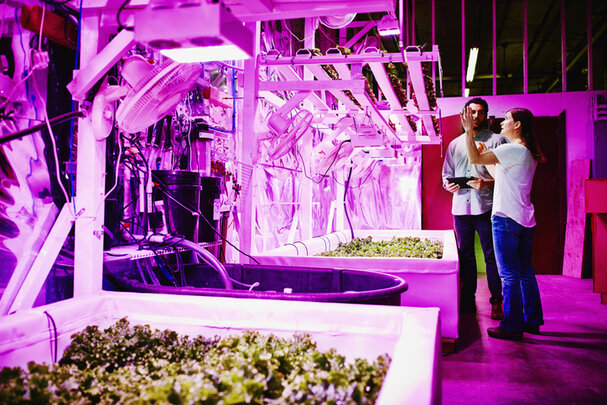
Credit: Thomas Barwick/Getty
23 June 2020

Thomas Barwick/Getty
A PhD supervisor can make or break a candidate’s progress. It’s estimated that roughly half of all PhD candidates in North America do not complete their doctoral studies due to a lack of support from their supervisor.
“It’s a decision that should be taken very seriously,” says Anna Sverdlik, an educational psychologist at the University of Quebec in Montreal, Canada.
“This is the person you could be working with for several years and it can shape who you are as an academic.”
Below are four tips that can help PhD candidates choose a suitable supervisor , and the red flags to watch out for:
1. Interview the supervisor
While most candidates focus on trying to impress a prospective supervisor, Emma Beckett took the opposite approach when she was choosing between institutions for her PhD.
“I approached each meeting as if I were interviewing the supervisor, and not the other way around,” says Beckett, a molecular nutrition scientist at the University of Newcastle in New South Wales, Australia.
“Forget the power dynamic and remember it’s about what’s best for your development.”
Asking the right questions can give students a better sense of whether a supervisor is the best match for them, says Sverdlik, who studies motivation and wellbeing in doctoral students.
“Talk to them and see what kind of person they are,” she says. “Students are often too grateful when someone shows an interest, and this puts them at a disadvantage.”
Red flag: If a potential supervisor is difficult to pin down for a meeting, they are unlikely to treat their students as a priority down the line, says Beckett.
2. Get an outside perspective
Reaching out to former students, collaborators, and lab members can be a good way of forming an accurate view of a supervisor’s reputation, says Gerard Dericks from Oxford Brookes University in the United Kingdom, who studies PhD student satisfaction.
“You want to do a mini background check, as it’s difficult to tell how honest a researcher is during an interview.”
Speaking with former co-authors can also give candidates a better idea of how collaborative a supervisor is and how well their skills and research interests match, says Dericks.
Paying attention to how colleagues interact with the supervisor can also prevent candidates from entering a toxic situation.
Beckett says she experienced this first-hand at a lab meet-and-greet session when she was searching for a postdoc position. “Multiple students came knocking on the principal investigator’s door in tears,” she recalls. “That’s definitely a bad sign.”
Red flag: If a supervisor seems to prefer working alone or doesn’t include students as co-authors on their papers, it’s unlikely that they will help the candidate build their resumes, says Sverdlik.
3. Look beyond the PhD
Candidates should look for a supervisor who can help them develop the skills they need to progress in their career after completing their PhD, says Beckett.
“Too many students get caught up in the PhD topic or project, but it’s about building skills that can help you pivot into what you want to do next,” she says. “The outcome of a PhD is not about output, but who you are as a scientist.”
Sverdlik says that candidates should discuss professional development opportunities with potential supervisors, such as writing workshops , training in advanced statistics, and research integrity seminars.
Red flag: Too much emphasis on publishing papers can be a sign that the potential supervisor lacks integrity and isn’t focussed on helping their students’ skill development, says Beckett.
4. Consider the supervisor’s working style
Rather than choosing a supervisor for their prestige and research interests, Beckett says candidates should pay attention to the workplace culture and how things run day-to-day.
This can mean discussing expectations before committing to a potential supervisor, such as working hours, meeting frequency, and how the supervisor tracks their candidates’ progress, she says.
“Some students like to be micromanaged, while others prefer to do things in their own time,” says Beckett. “Finding out whether your day-to-day controls and procedures are compatible is a way of understanding their ‘big picture’ ethos without actually asking.”
Red flag: Prospective supervisors who expect candidates to work on weekends or be on-call outside of working hours are likely to be more interested in a student’s productivity than their growth and development, says Beckett.
- Assistant Professor / Lecturer
- PhD Candidate
- Senior Researcher / Group Leader
- Researcher / Analyst
- Research Assistant / Technician
- Administration
- Executive / Senior Industry Position
- Mid-Level Industry Position
- Junior Industry Position
- Graduate / Traineeship
- Practitioner / Consultant
- Summer Schools
- Online Courses
- Professional Training
- Supplementary Courses
- All Courses
- PhD Programs
- Master's Programs
- MBA Programs
- Bachelor's Programs
- All Programs
- Remote/Hybrid Jobs
- Online Programs
- Online/Hybrid Conferences
- Fellowships
- Postgraduate Scholarships
- Undergraduate Scholarships
- Prizes & Contests
- Financial Aid
- Research/Project Funding
- Other Funding
- All Scholarships
- Conferences
- Exhibitions / Fairs
- All Conferences
- Economics Terms A-Z
- Career Advice
- Study Advice
- Work Abroad
- Study Abroad
- Campus Reviews
- Recruiter Advice
- University / College
- Graduate / Business School
- Research Institute
- Bank / Central Bank
- Private Company / Industry
- Consulting / Legal Firm
- Association / NGO
- All EconDirectory
- 📖 INOMICS Handbook
All Categories
All disciplines.
- Scholarships
- All Economics Terms A-Z
- EconDirectory
- All 📖 INOMICS Handbook
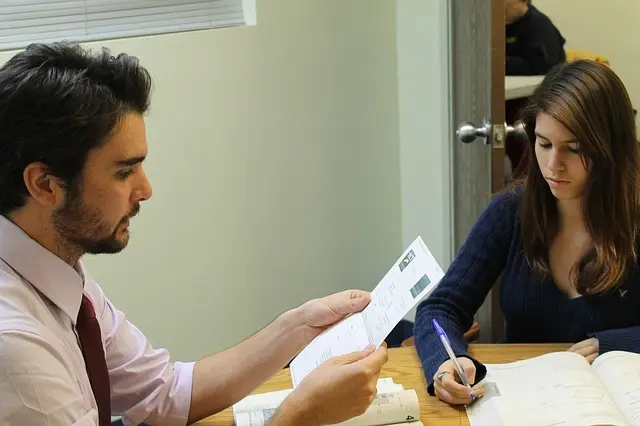
How To Find A PhD Supervisor
Read a summary or generate practice questions using the INOMICS AI tool
When planning to pursue a PhD , one of the most important decisions you must make is to choose a supervisor for your project. A supervisor supports you and advises you in your research, helps you with your career development (for example by introducing you to relevant people in your field and suggesting conferences that you should attend), and provides encouragement to you throughout your PhD. Your supervision will be the most important academic relationship of your PhD years, so it's vital to find someone who fits your research interests and personality well. Below we'll share some tips for helping you to find the best supervisor for your project. If you plan to start your PhD application this autumn, download our free guide " How to successfully apply to a PhD in Economics ".
Suggested Opportunities
- PhD Program, Master's Program
- Posted 2 days ago
MRes and PhD research programme in Economics

- PhD Program
8 fully-funded PhD positions in Economics, Analytics and Decision Sciences (EADS) at the IMT School for Advanced Studies

- Posted 5 days ago
PhD Program in Economics
Finding a Supervisor
The first thing to remember when you begin searching for a supervisor is that you are looking for someone who will fit well with you both professionally and personally. Try not to be too swept up by the famous names in your field - although in some ways, having a senior or well-known professor as your supervisor can be a great career advantage, the most famous professors are often those with the highest workload, and they may have little time to devote to supervision. Consider that more junior or less well-known researchers can make excellent supervisors if you have good rapport together. Try to find someone with whom you feel comfortable, and who challenges your ideas in a constructive and helpful way.
Remember that supervision is a relationship which should be beneficial to both parties. When you meet a potential supervisor, the meeting is as much for your benefit as for theirs – you can learn a lot about their supervision style, and how much time, funding, and other resources that they can offer you. Do ask direct questions, such as how much time they can devote to you, what duties you will be expected to perform as part of their research group, what funding is available and what will happen if the funding runs out before your project is completed, and so on. These practical matters can often be forgotten in the excitement of discussing your research ideas, but it is very much to your advantage to have as much information about these matters as possible.
Finding a Lab or Research Group
You are unlikely to be working alone with your supervisor, and it is probable that you will be joining a laboratory or research group headed by the supervisor. You may be working closely with other PhDs and postdocs in the group, so it's important that you get to know them too when making a decision. If you can, attend a lab meeting or discussion group, and see what topics are debated and how group members engage with each other. Talk to as many members of the group as you can – then can tell you not only about their research and how it might relate to your project idea, but also they can offer insight into the daily workings of the group, talk about their experience with supervision, and tell you more about what resources and support are available.
Do consider social aspects too – you'll be working a lot with other group members, so it's important that you get on well and feel comfortable talking to them. Does the group have organised social activities, and do lab members socialise outside of work? This can be a positive indication of a friendly, sociable group, which can be a source of support in stressful times.
Finding a University
Finally, remember that your supervisor and group will be located within a university structure which you should consider. Although the reputation of a university is not as important a factor as the reputation of the supervisor at the PhD level, you will still have to deal with the administrative and organisational aspects of the university . So find out what kind of systems are in place to deal with PhD students – some universities have co-ordinators or groups who specialise in overseeing this. The university should be able to help you further with practical matters such as finding housing, learning any required languages , or joining social or sporting groups.
There are many factors to consider when looking for a supervisor, so take your time and find out as much information as you can from as many sources as possible before making a decision. To see some of the most exciting PhD opportunities as they arise, sign up for our email alert .

Also Interesting
- Work Advice For Beginners
Tips to Survive Your First Job
It’s your first day at work and you’re nervous, naturally. You decide to quickly remember the journey that brought you to the computer screen you are now looking at. Many INOMICS readers will relate to this journey.

- INOMICS Recommendations
Top Master's Programs in Economics
Choosing your master's program is a big decision – with so many courses available, how can you find the right one for you? We're here to help by sharing a selection of great master's programs that you can find on INOMICS.

- INOMICS Salary Report
Is an Economics PhD Worth It? The PhD Pay Premium
Economics students may often wonder if doing a PhD is the right move for them. After all, you can still get a good job in economics with just a Master’s degree. We’ve covered different angles of this topic before with helpful advice about what degree you’ll need as an economist, asking whether you should do a PhD, and even asking what kinds of economists are paid the most. Thanks to INOMICS Salary Report 2023 data, we can look more closely at the pay benefit for an economics PhD in today’s job market. This will help you decide if doing an economics PhD will be worth it for your own career.

- study advice
Related Items

The Economics of Poverty and Inequality: Global Challenges in the 21st Century

Global School in Empirical Research Methods GSERM at the University of St.Gallen
Featured announcements, call for expression of interest for positions at the institute of…, prüfer*innen für die bankenaufsicht, 8 fully-funded phd positions in economics, analytics and decision…, 2nd rsep international multidisciplinary conference, 35th rsep international conference on economics, finance and business, upcoming deadlines.
- Apr 11, 2024 Full Professor (W2) in Applied Econometrics
- Apr 14, 2024 Professor in Empirical Economics and Data Science
- Apr 15, 2024 Career Integration Fellowships for western Economics PhDs teaching in CEE/fSU
- Apr 15, 2024 Doctoral Positions at the Graduate School of the Social and Behavioural Sciences (GSBS), University of Konstanz
- Apr 15, 2024 CALL FOR PAPERS - 17TH YOUNG ECONOMISTS' SEMINAR
INOMICS AI Tools
The INOMICS AI can generate an article summary or practice questions related to the content of this article. Try it now!
An error occured
Please try again later.
3 Practical questions, generated by our AI model
For more questions on economics study topics, with practice quizzes and detailed answer explanations, check out the INOMICS Study Guides.
Login to your account
Email Address
Forgot your password? Click here.

Community Blog
Keep up-to-date on postgraduate related issues with our quick reads written by students, postdocs, professors and industry leaders.
What Makes A Good PhD Supervisor?

- By Dr Harry Hothi
- August 12, 2020

A good PhD supervisor has a track record of supervising PhD students through to completion, has a strong publication record, is active in their research field, has sufficient time to provide adequate supervision, is genuinely interested in your project, can provide mentorship and has a supportive personality.
Introduction
The indicators that you’ll have the best chance of succeeding in your PhD project are multi-factorial. You’ll need to secure funding, find a research project that you’re interested in and is within your academic area of expertise, maybe even write your own research proposal, and find a good supervisor that will help guide you through PhD life.
As you research more into life as a doctoral student, you’ll appreciate that choosing a good supervisor is one of the most important factors that can influence the success of your project, and even If you complete your PhD at all. You need to find a good supervisory relationship with someone who has a genuine research interest in your project.
This page outlines the top qualities to look for as indicators of an ideal PhD supervisor. But before we get to that, we should be clear on precisely what the supervisor is there to do, and what they are not.
The Role of a PhD Supervisor
A PhD supervisor is there to guide you as you work through PhD life and help you make informed decisions about how you shape your PhD project. The key elements of their supervisory role include:
- To help ensure that you stay on schedule and maintain constant progress of your research so that you ultimately finish your PhD within your intended time frame, typically three to four years.
- To advise and guide you based on their knowledge and expertise in your subject area.
- To help you in the decision-making process as you design, prepare and execute your study design.
- To work with you as you analyse your raw data and begin to draw conclusions about key findings that are coming out of your research.
- To provide feedback and edits where necessary on your manuscripts and elements of your thesis writing.
- To encourage and motivate you and provide ongoing support as a mentor.
- To provide support at a human level, beyond just the academic challenges.
It’s important that you know from the outset what a supervisor isn’t there to do, so that your expectations of the PhDstudent-supervisor relationship are correct. A supervisor cannot and should not create your study design or tell you how you should run your experiments or help you write your thesis. Broadly speaking, you as a PhD student will create, develop and refine content for your thesis, and your supervisor will help you improve this content by providing you with continuous constructive feedback.
There’s a balance to be found here in what makes a good PhD supervisor, ranging from one extreme of providing very little support during a research project, to becoming too involved in the running of the project to the extent that it takes away from it being an independent body of work by the graduate student themselves. Ultimately, what makes a good supervisor is someone you can build a rapport with, who helps bring out the best in you to produce a well written, significant body of research that contributes novel findings to your subject area.
Read on to learn the key qualities you should consider when looking for a good PhD supervisor.
Qualities to Look For in A Good PhD Supervisor
1. a track record of successful phd student supervision.

A quick first check to gauge how good a prospective supervisor is is to find out how many students they’ve successfully supervised in the past; i.e. how many students have earned their PhD under their supervision. Ideally, you’d want to go one step further and find out:
- How many students they’ve supervised in total previously and of those, what percentage have gone onto gain their PhDs; however, this level of detail may not always be easy to find online. Most often though, a conversation with a potential supervisor and even their current or previous students should help you get an idea of this.
- What were the project titles and specifically the areas of research that they supervised on? Are these similar to your intended project or are they significantly different from the type of work performed in the academic’s lab in the past? Of the current students in the lab, are there any projects that could complement yours
- Did any of the previous PhD students publish the work of their doctoral research in peer-reviewed journals and present at conferences? It’s a great sign if they have, and in particular, if they’re named first authors in some or all of these publications.
This isn’t to say that a potential supervisor without a track record of PhD supervision is necessarily a bad fit, especially if the supervisor is relatively new to the position and is still establishing their research group. It is, however, reassuring if you know they have supervision experience in supporting students to successful PhD completion.
2. Is an Expert in their Field of Research
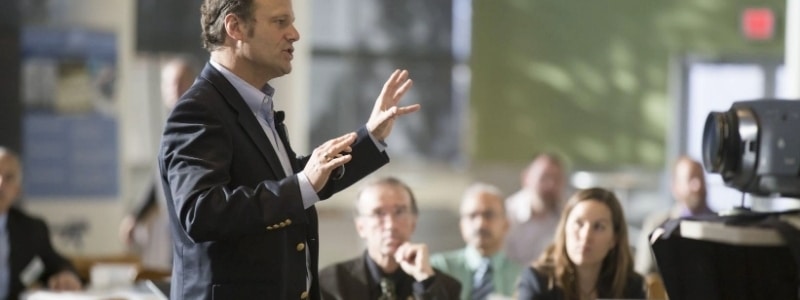
As a PhD candidate, you will want your supervisor to have a high level of research expertise within the field that your own research topic sits in. This expertise will be essential if they are to help guide you through your research and keep you on track to what is most novel and impactful to your research area.
Your supervisor doesn’t necessarily need to have all the answers to questions that arise in your specific PhD project, but should know enough to be able to have useful conversations about your research. It will be your responsibility to discover the answers to problems as they arise, and you should even expect to complete your PhD with a higher level of expertise about your project than your supervisor.
The best way to determine if your supervisor has the expertise to supervise you properly is to look at their publication track record. The things you need to look for are:
- How often do they publish papers in peer-reviewed journals, and are they still actively involved in new papers coming out in the research field?
- What type of journals have they published in? For example, are most papers in comparatively low impact factor journals, or do they have at least some in the ‘big’ journals within your field?
- How many citations do they have from their research? This can be a good indicator of the value that other researchgroups place on these publications; having 50 papers published that have been cited only 10 times may (but not always) suggest that this research is not directly relevant to the subject area or focus from other groups.
- How many co-authors has your potential supervisor published with? Many authors from different institutions is a good indicator of a vast collaborative professional network that could be useful to you.
There’re no hard metrics here as to how many papers or citations an individual needs to be considered an expert, and these numbers can vary considerably between different disciplines. Instead, it’s better to get a sense of where your potential supervisor’s track record sits in comparison to other researchers in the same field; remember that it would be unfair to directly compare the output of a new university lecturer with a well-established professor who has naturally led more research projects.
Equally, this exercise is a good way for you to better understand how interested your supervisor will be in your research; if you find that much of their research output is directly related to your PhD study, then it’s logical that your supervisor has a real interest here. While the opposite is not necessarily true, it’s understandable from a human perspective that a supervisor may be less interested in a project that doesn’t help to further their own research work, especially if they’re already very busy.
Two excellent resources to look up publications are Google Scholar and ResearchGate .

3. Has Enough Time to Provide Good PhD Supervision

This seems like an obvious point, but it’s worth emphasising: how smoothly your PhD goes and ultimately how successful it is, will largely be influenced by how much time your research supervisor has to provide guidance, constructive academic advice and mentorship. The fact that your supervisor is the world’s leading expert in your field becomes a moot point if they don’t have time to meet you.
A good PhD supervisor will take the time to meet with you regularly in person (ideally) or remotely and be reachable and responsive to questions as and when they arise (e.g. through email or video calling). As a student, you want to have a research environment where you know you can drop by your supervisors’ office for a quick chat, or that you’ll see them around the university regularly; chance encounters and corridor discussions are sometimes the most impactful when working through problems.
Unsurprisingly, however, most academics who are well-known experts in their field are also usually some of the busiest too. It’s common for established academic supervisors to have several commitments competing for their time. These can include teaching and supervising undergraduate students, masters students and post-docs, travelling to collaborator meetings or invited talks, managing the growth of their academic department or graduate school, sitting on advisory boards and writing grants for funding applications. Beware of the other obligations they may have and how this could impact your work relationship.
You’ll need to find a balance here to find a PhD supervisor who has the academic knowledge to support you, but also the time to do so; talking to their current and past students will help you get a sense of this. It’s also reassuring to know that your supervisor has a permanent position within your university and has no plans for a sabbatical during your time as a PhD researcher.
4. Is a Good Mentor with a Supportive Personality

A PhD project is an exercise in independently producing a substantial body of research work; the primary role of your supervisor should be to provide mentoring to help you achieve this. You want to have a supervisor with the necessary academic knowledge, but it is just as important to have a supportive supervisor who is actively willing and able to provide you constructive criticism on your work in a consistent manner. You’ll likely get a sense of their personality during your first few meetings with them when discussing your research proposal; if you feel there’s a disconnect between you as a PhD student and your potential supervisor at this stage, it’s better to decide on other options with different supervisors.
A good supervisor will help direct you towards the best outcomes in your PhD research when you reach crossroads. They will work with you to develop a structure for your thesis and encourage you to set deadlines to work to and push you to achieve these. A good mentor should be able to recognise when you need more support in a specific area, be it a technical academic hurdle or simply some guidance in developing efficient work patterns and routines, and have the communication skills to help you recognise and overcome them.
A good supervisor should share the same mindset as you about finishing your PhD within a reasonable time frame; in the UK this would be within three to four years as a full-time university student. Their encouragement should reflect this and (gently) push you to set and reach mini-milestones throughout your project to ensure you stay on track with progress. This is a great example of when a supportive personality and positive attitude is essential for you both to maintain a good professional relationship throughout a PhD. The ideal supervisor will bring out the best in you without becoming prescriptive in their guidance, allowing you the freedom to develop your own working style.
Finding a PhD has never been this easy – search for a PhD by keyword, location or academic area of interest.
To sum up, the qualities you should look for in a good PhD supervisor are that they have a strong understanding of your research field, demonstrated by regular and impactful publications, have a proven track record of PhD supervision, have the time to support you, and will do so by providing mentorship rather than being a ‘boss’.
As a final point, if you’re considering a research career after you finish your PhD journey, get a sense of if there may any research opportunities to continue as a postdoc with the supervisor if you so wanted.

Starting your PhD can feel like a daunting, exciting and special time. They’ll be so much to think about – here are a few tips to help you get started.
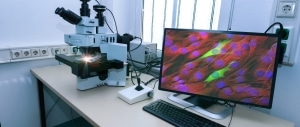
Thinking about applying to a PhD? Then don’t miss out on these 4 tips on how to best prepare your application.

Is it really possible to do a PhD while working? The answer is ‘yes’, but it comes with several ‘buts’. Read our post to find out if it’s for you.
Join thousands of other students and stay up to date with the latest PhD programmes, funding opportunities and advice.

Browse PhDs Now

There are various types of research that are classified by objective, depth of study, analysed data and the time required to study the phenomenon etc.

An academic transcript gives a breakdown of each module you studied for your degree and the mark that you were awarded.

Dr Hooper gained his PhD in evolutionary biology from the the University of Sheffield. He is now a journalist and writer (last book called Superhuman) and podcast editor at New Scientist.
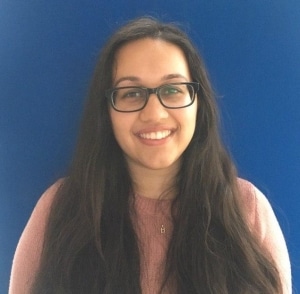
Harneet’s heading into the fourth year of her PhD at the University of Leicester. Her research looks at the electrical currents in the Earth’s magnetosphere: how they change with time, and under different conditions.
Join Thousands of Students
School of Graduate Studies
Find a supervisor.
If you’re enrolled in a thesis-based graduate program, you will conduct your own research under the guidance of a supervisor. You are responsible for selecting your research topic and seeking out a potential supervisor.
The supervisory relationship is a foundation of graduate education, particularly in the doctoral-stream programs.
The success of good supervision is a shared responsibility. It depends on both student and supervisor communicating well, being tolerant and understanding, and each holding the other to high standards. The graduate unit (department, centre, or institute) also plays a role, providing clarity and consistency of expectations, upholding academic standards, administering the program fairly and effectively, and intervening where necessary to help resolve problems.
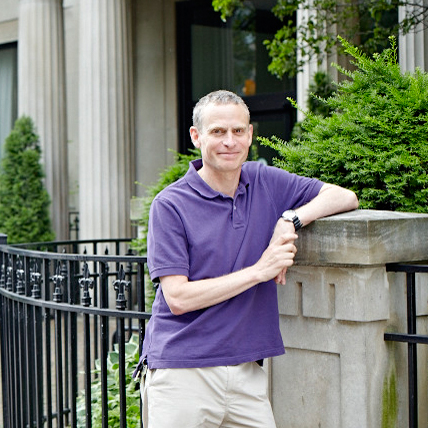
“ I enjoy teaching graduate courses and seminars, but my favourite part is supervising dissertations.
Choose a supervisor.
The responsibility to find a supervisor, in most graduate units, rests with the student. Securing a supervisor may however even be a condition of admission. Some graduate units assign a supervisor, typically in master’s programs. How do you know? Check your graduate handbook or with your graduate administrator.
Full members of graduate faculty may serve as the sole or major thesis supervisor for either doctoral or master’s students in the graduate unit while associate members of graduate faculty may serve as members of a doctoral supervisory committee, but may only be the sole or major supervisor for master’s students.
Faculty members A to Z listing .
Get Advice & Support
Talk to your graduate unit. Read your graduate handbook. Know what procedures your graduate unit has in place to help you find a supervisor, or to change a supervisor in the unlikely event that becomes necessary.
The SGS Graduate Supervision Guidelines – Students is a good resource, a set of best practices, general guidelines, policies, and suggestions that provide direction on choosing a supervisor, establishing a supervisory committee, and maintaining a productive working relationship among all three. The guidelines include a supervision checklist for students.
Identify Clear Expectations
Your supervision relationship will benefit from having clear, shared expectations with your supervisor. Set timelines for each stage of work. Identify preferred methods of communication. Discuss intellectual property issues. Complete an intellectual property awareness form . Identify publication expectations and other matters.
Know Your Deadlines
All doctoral students are required to have a supervisor and supervisory committee in place by the end of the second year of their program. Some graduate units have earlier deadlines. Securing a supervisor, supervisory committee and an approved thesis proposal is a requirement for doctoral students to achieve candidacy in their program. Know your deadlines. Compliance with the deadlines is required to maintain satisfactory progress and good academic standing in your degree program.
Maintain Healthy Supervisory Relations
A doctoral student is expected to meet with the supervisory committee at least once a year, and more often if the committee so requires. Supervisory Committee meetings are vital for monitoring doctoral progress in a doctoral program.
The supervisory committee consists of your supervisor and at least two faculty members. Its role is to provide support to you and your supervisor by broadening and deepening the range of expertise and experience available, and by offering advice about, and assessment of, your work. Graduate students who establish their supervisory committees early in their programs and who meet with their committees regularly, tend to complete their degree programs successfully, and sooner than students who wait to establish their committees.
Further information on maintaining good academic standing and supervision is found in the General Regulations section of the SGS Calendar and on the policies and guidelines page of this website.
Recognize Your Supervisor
Do you know a great graduate supervisor who has made a big difference in a student’s development as a researcher and in pursuing future academic and professional careers? The JJ Berry Smith Award for Doctoral Supervision recognizes outstanding performance in the multiple roles associated with doctoral supervision. It is awarded annually to an active faculty member who, over a minimum of 15 years, has demonstrated excellence in supervision at U of T. Recognize your supervisor.
When Problems Arise
Should a problem arise in your supervisory relationship, try to resolve the difficulty amicably through informal discussion first. If that does not resolve the problem, there are several avenues to pursue within your graduate unit: the supervisory committee, the Graduate Coordinator and the Chair of the graduate unit. If the graduate unit is unable to find a satisfactory solution, advice may be sought from the Vice-Dean, Students, School of Graduate Studies. If all else fails, and if the nature of the issue is academic, you have recourse to a formal academic appeal.

Quick Access
- Research Postgraduate Studies
- Research at PolyU
- Study at PolyU
- HK PhD Fellowship Scheme
- The Hong Kong PhD Fellowship Scheme under the Research Grants Council
- PolyU A to Z
- Alumni Affairs Office
- Academic Registry
- Finance Office
- Information Technology Services
- Pao Yue-Kong Library
- Research and Innovation Office
- Student Affairs Office
- University Health Services

- Prospective Students
- How to Apply for Research Studies
- Admission Requirements
Find a Supervisor
- Fellowship & Scholarship Schemes
- The Hong Kong PhD Fellowship Scheme
- PolyU Sports Scholarship Scheme for RPg Students
- Dual PhD Degree Programmes
- Collaborative PhD Training Programmes
- Research Student Attachment Programme – Incoming
- Research Postgraduate Studies Booklet
- Words from Graduates
Current Students
- List of Research Postgraduate Subjects
- Awards Grants and Scholarships
- PolyU PhD Scholars International Collaborative Research Fellowship (ICRF)
- Resources for Skills Enhancement
- Notices to Students
- Useful Information for New Research Postgraduate Students
- Academic Integrity
- Online Systems
- Equal Semester/Term
- Academic Calendar
- Graduation Requirements
- Research Postgraduate Student Handbook
- Forms for Students
- Tuition Fees and Other Fees
- Research Student Attachment Programme – Outgoing
Undergraduate Research
- Message from PolyU President
- Funding Schemes for CURI Students
- Application for Two-Year URIS 2024/25
- Potential Supervisor List
- Approved Project Lists 2021 - 2023
- Best URIS Research Project Award 2023
- URIS Handbook and Forms
- About CURI RC
- UG Summer Research Abroad Sponsorship (USRA)
- Congregation Matters
- Award and Parchment
- Electronic Certifications – Award Parchments and Transcript of Studies
- Forms for Graduates
- Online System for Congregation Matters
- Guidelines and Regulations for Research Postgraduate Studies
- RPg Admission Information
- HKPFS 2024-25
- Promotion Resources for HKPFS
- Sharing Session on HKPFS Promotion & Recruitment
- UPSF System
- Joint PhD Supervision Scheme with Chinese Mainland Universities
- PolyU-A*STAR Joint PhD Supervision Programme
- Guidelines on Research Student Attachment Programme (RSAP)
- Faculty Research Committee / School Board
- Departmental / School Research Committee
- Checklists for RPg Student-Related Processes
News and Events
- GS Newsletter
- International Research Summer School 2024
- PolyU PhD Info Week 2023
- PolyU Research Student Conference (PRSC) 2023
- PhD Thesis Award 2023
- Best Research Postgraduate Student of the Year 2023
- Outstanding Research Postgraduate Alumni Award 2023
- Enrichment Activities
- Distinguished Speaker Series
- Message from Dean
- Vision and Mission
- Advisory Committee
- GS Ambassador Programme
- Contacts by Functions
Faculty of Business
- Department of Logistics and Maritime Studies
- Department of Management and Marketing
- School of Accounting and Finance

Faculty of Construction and Environment
- Department of Building Environment and Energy Engineering
- Department of Building and Real Estate
- Department of Civil and Environmental Engineering
- Department of Land Surveying and Geo-Informatics

Faculty of Engineering
- Department of Aeronautical and Aviation Engineering
- Department of Biomedical Engineering
- Department of Computing
- Department of Electrical and Electronic Engineering
- Department of Industrial and Systems Engineering
- Department of Mechanical Engineering
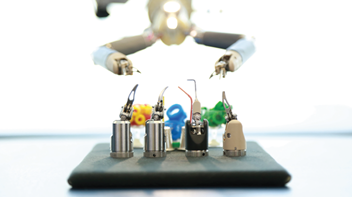
Faculty of Health and Social Sciences
- Department of Applied Social Sciences
- Department of Health Technology and Informatics
- Department of Rehabilitation Sciences
- School of Nursing
- School of Optometry

Faculty of Humanities
- Department of Chinese History and Culture
- Department of Chinese and Bilingual Studies
- Department of English and Communication

Faculty of Science
- Department of Applied Biology and Chemical Technology
- Department of Applied Mathematics
- Department of Applied Physics
- Department of Food Science and Nutrition

School of Design

School of Fashion and Textiles
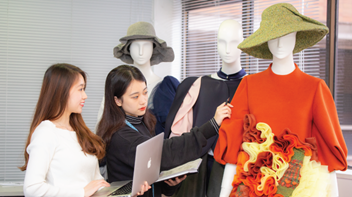
School of Hotel and Tourism Management

We use Cookies to give you a better experience on our website. By continuing to browse the site without changing your privacy settings, you are consenting to our use of Cookies. For more information, please see our Privacy Policy Statement .
Your browser is not the latest version. If you continue to browse our website, Some pages may not function properly. You are recommended to upgrade to a newer version or switch to a different browser. A list of the web browsers that we support can be found here
What are you looking for?

Popular Search
- Research studies
Explore our brand new website! We hope you like the improvements we've made. We'd love to hear your feedback and please let us know if you find something that requires our attention – Website feedback .
PhD and Doctoral
Discover to apply for your path to in-depth exploration and expertise in field-specific topics, enhancing your knowledge with investigation into a topic with relevance to your field.
At the University of Waikato, you can apply at any time of the year to study towards:
• Doctor of Philosophy (PhD) • Doctor of Health Science (DHSc) • Doctor of Education (EdD) • Doctor of Musical Arts (DMA) • Doctor of Juridical Science (SJD), and • Master of Philosophy (MPhil)
The Doctor of Philosophy (PhD) is the University of Waikato's highest research degree. It offers the opportunity to explore a specific research area or topic that you are passionate about, while giving you advanced skills in research, problem solving and writing. Completing a PhD will open up exciting new employment opportunities, not just in academia, but in government, consulting, research institutes, community organisations and much more.
To earn the PhD degree or other higher degree, you will undertake a research project under the guidance of at least two supervisors, produce a thesis and complete an oral examination. Your work will need to be significant and original, and make a meaningful contribution to your field of study.
Our Higher Research Degrees may have different or additional requirements. You can find the degree regulations by visiting the University of Waikato Calendar and searching the qualification/s you are interested in.
How to apply
Check your eligibility.
To be eligible for PhD or Higher Degree study you must have completed a Bachelor with Honours or a Masters degree, which has a significant research component. A research component must be a thesis, dissertation, or research project which makes up at least 25% of one year’s study of your entry qualification. Research methods papers are not counted as a research component.
Masters degrees that do not meet the research component requirements are not qualifying degrees for entry into Higher Research Degree study.
You must also have achieved a minimum of Second Class, First Division, in your qualifying degree.
If you are an International Student, you will need to meet our English language requirements
Find and connect with a research supervisor or project
You will need to find a research supervisor who works in your area of interest before you apply. This supervisor will support, guide and mentor you through your research.
To view potential research supervisors, please visit the University of Waikato’s Staff Profiles.
You can filter you search by:
• Research Interests • Publications • Prior students supervised. • Availability to supervise. • Current research projects
Once you have found a suitable supervisor, you will need to email them to discuss your research and how it aligns with their current projects and interests. You will need agreement from at least one University of Waikato supervisor and an Invitation to Apply to proceed further.
Please note, although you may have an agreement from a potential supervisor, your formal application and admission to the PhD or Higher Research Degree programme will require final approval from the University of Waikato Postgraduate Research Committee.
University of Waikato Staff Profiles
You can look for an established project or research area using the University of Waikato Doctoral Opportunities page. Use the filters to look by supervisor, project and topic - new vacancies are added regularly.
Supervisors of established projects will have their own requirements for you to follow as part of their short-listing/screening processes. Please ensure that you clearly indicate the vacancy that you are applying for in your email and that you provide all the information requested.
PhD Opportunities
Receive an Invitation to Apply
After a University of Waikato Supervisor has formally agreed to supervise your PhD or Higher Research Degree, they will send you an email with an Invitation to Apply.
Once you have received your Invitation to Apply, you can move on to preparing and submitting your application for your chosen programme. You will be asked to supply evidence of your Invitation to Apply in your application.
If you do not have an Invitation to Apply, your application will not be considered.
Prepare your application documents
Use our application checklist to ensure that you have all the documents and information you need to complete your Application to Enrol.
We cannot progress your application without all the required documents, so please take the time to make sure you have provided everything requested.
Download our application checklist
Submit your Application to Enrol
Now you have everything you need, you are ready to submit your application using our MyWaikato Application Portal.
You will be guided through the application process to upload your documents, provide evidence of your Invitation to Apply from your supervisor, supply the contact details of your two referees and indicate whether you would like to be considered for a University of Waikato Doctoral Scholarship.
Indicate whether you would like to be considered for a University of Waikato Doctoral Scholarship
Applications for doctoral scholarships are considered four times each year. These scholarships include:
• University of Waikato Doctoral Scholarship • The University of Waikato Māori Doctoral Scholarship •The University of Waikato Doctoral Scholarship for Pacific Peoples
If you have indicated in your application for PhD or Higher Research Degree study that you would like to be considered for a scholarship, your application will be considered in the next scholarship round (see table below). You do not need to complete a separate application or do anything further. In most cases, the date of your application to enrol will determine which round you are considered for a scholarship.
However, to be considered for a scholarship, students must receive an Offer of Place in the doctoral programme prior to the scholarship selection meeting.
Doctoral scholarship
Applications go through a competitive, strategic and merit-based selection process, and you will be advised of the scholarship outcome through the MyWaikato portal and by email. It will take up to 8 weeks after receiving an Offer of Place in the doctoral programme to hear the outcome of your scholarship.
You can find answers to frequently asked questions, as well as more information about University of Waikato Doctoral Scholarships, funded research projects, and other externally funded scholarships by visiting the Scholarships Finder.
What happens once I have submitted my Application to Enrol?
Your application will be reviewed by the relevant School/Faculty once we have received all the documentation requested. We will contact you via email if we have any questions or need anything further from you, please keep an eye on your inbox.
Applications are considered monthly from February to November each year. Depending on when you submit your application, it may be held over to the next month for consideration. The School of Graduate Research will let you know when to expect the outcome of your application.
You’re viewing this website as a domestic student
You’re currently viewing the website as a domestic student, you might want to change to international.
You're a domestic student if you are:
- A citizen of New Zealand or Australia
- A New Zealand permanent resident
You're an International student if you are:
- Intending to study on a student visa
- Not a citizen of New Zealand or Australia
30 Best universities for Psychology in Moscow, Russia
Updated: February 29, 2024
- Art & Design
- Computer Science
- Engineering
- Environmental Science
- Liberal Arts & Social Sciences
- Mathematics
Below is a list of best universities in Moscow ranked based on their research performance in Psychology. A graph of 406K citations received by 66.7K academic papers made by 30 universities in Moscow was used to calculate publications' ratings, which then were adjusted for release dates and added to final scores.
We don't distinguish between undergraduate and graduate programs nor do we adjust for current majors offered. You can find information about granted degrees on a university page but always double-check with the university website.
1. Moscow State University
For Psychology

2. National Research University Higher School of Economics

3. Moscow Medical Academy

4. Russian National Research Medical University

5. RUDN University

6. Moscow Institute of Physics and Technology

7. National Research Nuclear University MEPI

8. Russian Presidential Academy of National Economy and Public Administration

9. Moscow State Pedagogical University

10. Finance Academy under the Government of the Russian Federation

11. Bauman Moscow State Technical University

12. Moscow State Institute of International Relations

13. N.R.U. Moscow Power Engineering Institute

14. Moscow Aviation Institute

15. Plekhanov Russian University of Economics

16. Russian State University for the Humanities

17. State University of Management

18. Russian State Social University

19. National University of Science and Technology "MISIS"

20. Moscow State Linguistic University

21. New Economic School

22. Russian State University of Oil and Gas
23. mendeleev university of chemical technology of russia.

24. Moscow Polytech

25. Moscow State University of Railway Engineering

26. National Research University of Electronic Technology

27. Moscow State Technological University "Stankin"

28. Pushkin State Russian Language Institute

29. Russian State Agricultural University

30. Moscow International University

Universities for Psychology near Moscow
Psychology subfields in moscow.
New era begins at Moscow City Hall
Monday’s Moscow City Council meeting ushered in a new era as three new city councilmembers, a new city supervisor and new mayor were sworn into office.
Mayor Art Bettge took the oath of office, Julia Parker, Hailey Lewis and Gina Taruscio were sworn onto City Council and Bill Belknap took his position as the new city supervisor.
Much of the meeting was devoted to sharing kind words for outgoing mayor Bill Lambert, outgoing city supervisor Gary Riedner and outgoing city council member Brandy Sullivan.
Riedner is leaving after 26 years.
“Gary embodies the complex multifaceted character trait of understanding,” city attorney Mia Bautista said.
Deputy city supervisor Tyler Palmer said Riedner practiced “selfless service” and his work to oversee Moscow’s city services affected every citizen.
Deputy city supervisor Jen Pfiffner said Riedner has worked through every hard decision with an empathetic approach and is a “living example of ethical management.”
Riedner then took to the podium to share his brief remarks.
“I don’t know who you folks were describing tonight,” he joked. “He sounds like a heck of a guy.”
Riedner thanked city staff for doing their jobs with the “heart of a servant” and said he was grateful to work with the mayor, council and the community.
“The community means a lot to me,” he said.
As a parting gift, he was allowed to keep a wooden duck decoy that was part of Moscow’s public art collection and on Riedner’s wall since 2004.
As Lambert gave his final remarks, he thanked the 170 people who work for the city as well as the many who volunteer on the city’s commissions.
“That’s what makes our city great is the volunteerism,” he said.
He credited the council for being steadfast in their actions, including when it came to making decisions in response to COVID-19. He said they did what they thought was right for the community and did not let politics interfere with their decision making.
Lambert has served the city of Moscow for 21 years as a member of the planning and zoning commission, board of adjustment, city council and as mayor.
“I never took it for granted ever,” he said.
As Parker, Lewis and Taruscio were sworn in, it began what is likely the first term in Moscow’s history with a council of all women.
Sullivan chose not to run for re-election this year and former council member Bettge now takes his post as mayor.
Sullivan thanked residents for being involved in city government by attending meetings and joining commissions. She credited the council for being respectful of each other and approaching issues with an open mind.
“You all play a big part in why this has been a positive experience for me,” she said.
Heart care for life
Feeling chilled to the bone while fishing in January is an endurable compromise for doing something you love.

IMAGES
VIDEO
COMMENTS
How you'll find your PhD supervisor depends on whether you're applying for an advertised project or putting forward your own research proposal.. If you're applying for an advertised project, the process of finding a supervisor is simple.Usually they'll be the academic who has devised the project in question, and the person you'll be making your application to.
One key tip on how to find a PhD supervisor is to be transparent about your work and progress. Do not hide any inadvertent errors you may have made in your experiment or analyses. Always keep your supervisor "in the loop"! Honesty in every aspect of your work and working relationship will help build trust. Be realistic.
Step 3: Identify papers of interest. You'll find that the papers returned in this search will be on topics related to your subject of interest, or not. Identify the ones that appear to overlap with the research you would like to do. If you find yourself drawn to a particular sub-topic within the papers returned, you can also re-do your search ...
Rule 8: Consider the entire experience. Your PhD supervisor is only one—albeit large—piece of your PhD puzzle. It is therefore essential to consider your PhD experience as whole when deciding on a supervisor. One important aspect to contemplate is your mental health.
First contact. The next step is thus to either contact the author directly or the institution and express your interest in working with them for your PhD outlining your previous academic background and your research proposal. Having read his/her papers will also be helpful in writing a research proposal that will be informed by his/her approach ...
Meet with your potential supervisors. An important step in how to find a PhD supervisor is to find out what they're like in person. This means contacting and setting up a time to meet each person on your shortlist. Chelsea suggests an introductory email to get the ball rolling. "Send an email briefly outlining who you are, your background ...
Below are four tips that can help PhD candidates choose a suitable supervisor, and the red flags to watch out for: 1. Interview the supervisor. While most candidates focus on trying to impress a ...
A supervisor supports you and advises you in your research, helps you with your career development (for example by introducing you to relevant people in your field and suggesting conferences that you should attend), and provides encouragement to you throughout your PhD. Your supervision will be the most important academic relationship of your ...
Look for faculty members who have focused expertise in your research field and whose research interests align with your own. An ideal PhD supervisor must be someone who has authored a good number of articles, chapters, and books. This indicates that your supervisor is up-to-date on recent developments in your field and can provide you with the ...
Alternatively, you can find a supervisor using the Monash Find a Researcher tool. Please do not send a bulk email to a number of researchers. If a researcher agrees to supervise your research project, keep a copy of the email confirming this arrangement, as you will need it for your application. Information for Indigenous Australians.
A good PhD supervisor should have a track-record of students completing their doctorates under them. A quick first check to gauge how good a prospective supervisor is is to find out how many students they've successfully supervised in the past; i.e. how many students have earned their PhD under their supervision.
You are responsible for selecting your research topic and seeking out a potential supervisor. The supervisory relationship is a foundation of graduate education, particularly in the doctoral-stream programs. The success of good supervision is a shared responsibility. It depends on both student and supervisor communicating well, being tolerant ...
1. The strength lies in the common ground. The key is to find a supervisor through the area of research or issue you're most interested in. By shaping your selection around the topic you love, you will focus on a smaller number of relevant supervisors, and you can start looking closer at their research interests.
Get in contact with our leading experts to discuss your research interests and supervision opportunities. Browse our Find a researcher page to begin your search. Interested in the Faculty of Business and Law, please email their team directly. Interested in the Institute for Health Transformation (IHT), please explore IHT's find a researcher ...
Faculty of Construction and Environment. Department of Building Environment and Energy Engineering. Department of Building and Real Estate. Department of Civil and Environmental Engineering. Department of Land Surveying and Geo-Informatics.
To earn the PhD degree or other higher degree, you will undertake a research project under the guidance of at least two supervisors, produce a thesis and complete an oral examination. ... You will need to find a research supervisor who works in your area of interest before you apply. This supervisor will support, guide and mentor you through ...
The Economics PhD programme is designed to prepare professionals in economic research and education of the highest academic calibre in Russia, as well as the global academia. The Doctoral School of Economics offers training in the following fields: Economic Theory. Mathematical, Statistical and Instrumental Methods of Economics.
October 27, 2021 John Webb News. Moscow Mayor Bill Lambert has chosen Cody Riddle of Boise as the City's next Deputy City Supervisor for Community Planning and Design. Riddle is currently the Deputy Planning Director for the City of Boise, having served nearly 18 years there. In addition to public service, Riddle has experience in the ...
Moscow 30. Saint Petersburg 17. Omsk 6. Tomsk 6. Ranking methodology. Below is the list of 30 best universities for Psychology in Moscow, Russia ranked based on their research performance: a graph of 406K citations received by 66.7K academic papers made by these universities was used to calculate ratings and create the top.
Monday's Moscow City Council meeting ushered in a new era as three new city councilmembers, a new city supervisor and new mayor were sworn into office. Mayor Art Bettge took the oath of office ...